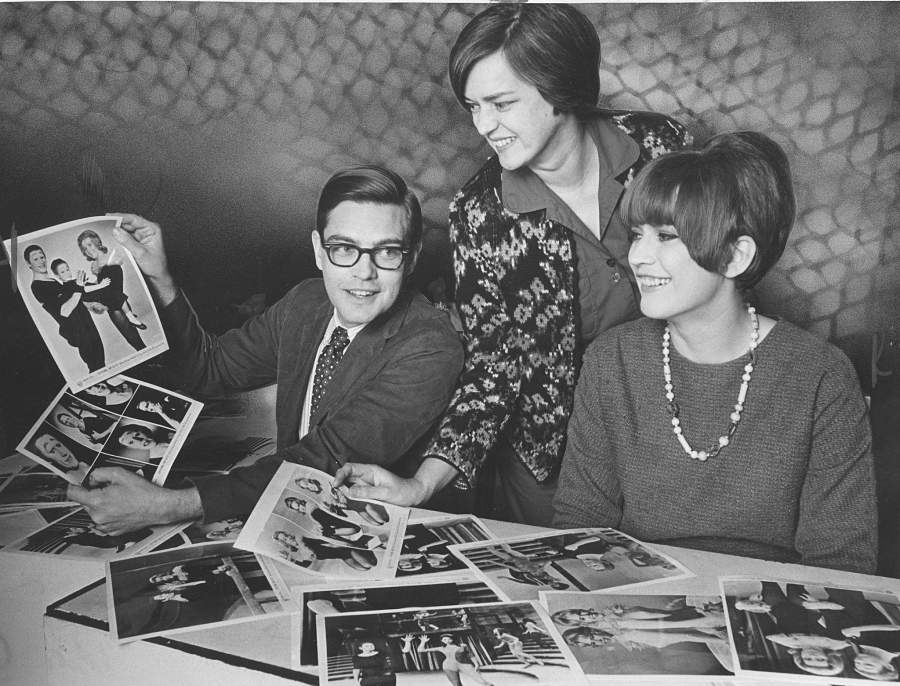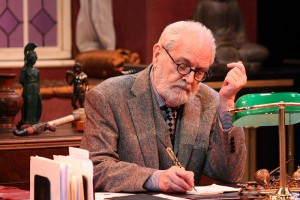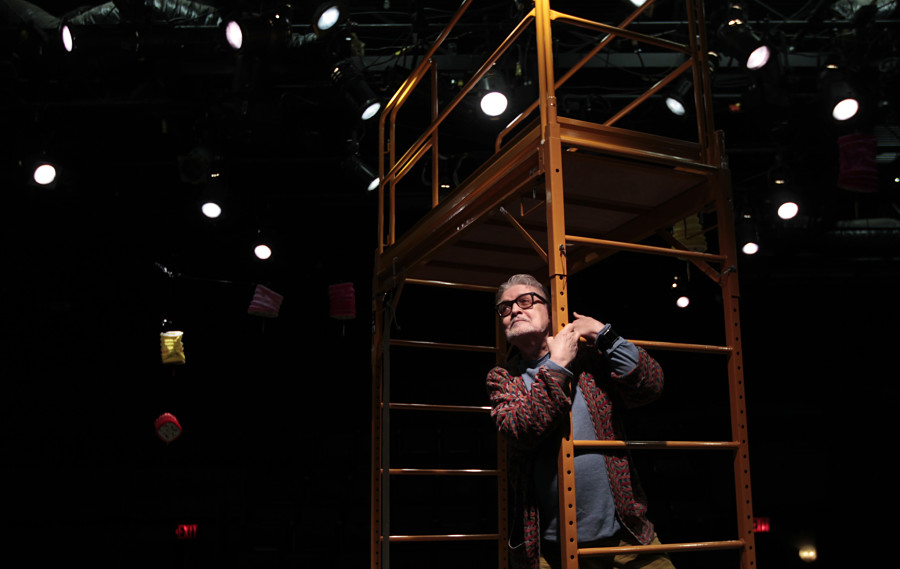On Friday, May 29, 2015, theatre marquees across North Texas went dark. At curtain speeches, theatre managers asked audiences to stand and share a moment in reflective remembrance. At other venues, rehearsing casts clasped hands and bowed heads in silence. These were all gestures to honor the life and accomplishments of Theatre Three’s Jac Alder, who died at age 80 on May 22, 2015, due to respiratory failure. Actor, stage director, set designer, architect, coach, mentor, educator, community-builder, inspirational visionary, teller of amazing tales and the longest-serving continuous executive producer/director of a professional theatre in the United States. Jac oversaw at least 378 main stage shows during his 54-year tenure: shows he applied for rights to produce, produced, directed, acted in, designed and/or promoted. At openings, Jac greeted audiences with a warm, wry, never-canned curtain speech. Audiences knew they were welcome at the house Jac built, as did the thousands of actors, directors, designers, musicians, interns and production staff who flourished under his creative roof.
In 1961, Jac’s wife Norma Young founded Theatre Three, along with Jac, Esther Ragland and Robert Dracup, producing plays intended to “expand understanding of the human condition.” They opened with what became the company’s signature theatre-in-the-round format at the Sheraton Dallas Hotel and soon expanded to a converted garage near downtown Dallas. In 1969 they leased a larger space at an uptown retail center, the Quadrangle, doubling seating capacity. A successful capital campaign allowed them to purchase the building in 1985. Young gave the company its name to represent the three essential elements she defined as “co-equal”: the playwright, the production and the audience. She remained artistic director until she died in 1998.

Did Jac realize he would transcend the ordinary as a visionary theatre producer? That fire blazed hot and early and continued to warm those he touched until the end. He embodied the mission of Theatre Three with such joyful, thorough commitment, it gave him the aura of a bodhisattva.
Jac possessed a sixth sense for spotting talent and a wealth of generosity to foster it. Pulitzer and Tony Award-winning playwrights honed their chops as Theatre Three actors or in workshops there, including Beth Henley, Doug Wright and Tracy Letts. When I interviewed some of the region’s distinguished artists for this tribute, I heard over and over what sounded like a mantra: “Jac took a chance on me, an unknown, and gave me my first professional artistic gig.”
Theatre Three’s designated acting artistic director, Bruce R. Coleman, described the genesis of his 30-year working relationship and friendship with Alder:
“When I was finishing college, a friend recommended I interview for a general internship at Theatre Three. I met this amazingly open, honest man wearing huge glasses, a bright yellow shirt and a crocheted blue necktie. Even though I was a visual art major in college, he saw something he liked and hired me. A year later he turned aged-23 me loose to direct my first show, a Harry Chapin retrospective musical. Jac launched my life’s career as a director/designer. Theatre Three has produced almost every Sondheim musical, and I have the honor of being the only other director at Theatre Three allowed to direct Sondheim.”
Respected regional actor/director Cameron Cobb was the last person to perform on the mainstage with Jac Alder (in Freud’s Last Session in 2013). He had this to say:

“I felt extremely lucky to do a two-hander with Jac because I knew that I would get access to the inner workings. What I really found, in the work on- and offstage, was a man who truly operated with childlike wonder and joy at being able to do the work of the theatre. Jac was deftly aware of his status in the theatre scene and classy enough to use it to help others as opposed to himself.”
Actor Wendy Welch recalls how fiercely original and personally committed Jac was: “My mother, Anne Jackson, taught voice to most of the region’s professional musical theatre actors, many at Theatre Three. I grew up there, surrounded by all that excellence. Jac and Norma inspired me to make theatre my career. Right out of SMU, I was cast in Theatre Three’s The Gondoliers, with Jac playing my father. I found him intimidating and fascinating, outrageous and fearless, an utterly honest artist and surprisingly socially and politically aware. He had a genius for life. In recent years Jac would wear only black, white or grey to the theatre, almost a uniform. One night he appeared wearing brightly colored clothes. I asked: Why the change? He said he was in mourning for his country for eight years and had put all his bright clothes in storage. With Barack Obama’s election, he could wear bright colors again.”
But to Alder, a commitment to civil rights and social justice issues was more than a fashion statement. Color-blind casting? He employed it long before it became a thing. In 1961, the very first play Jac directed was Ossie Davis’s Purlie Victorious. He produced three of August Wilson’s plays, the first before Wilson won a Pulitzer, when no other “white” theatre company in the region would do so.
Dr. Janice Franklin, professor of music and humanities at Mountain View College, longtime musical director at Theatre Three, explains how Jac’s advocacy affected her life as an African-American artist: “Jac and Norma offered opportunities to African-American actors, singers and directors that nobody else was doing here at the time. So forward-thinking for that era, Jac and Norma developed a unique, holistic vision and welcomed leading the region in being inclusive. When I arrived in Dallas in 1974 with a freshly minted Master’s degree in music, I found myself auditioning to become music director for several shows at Theatre Three. Never mind that my background was classical music, not musical theatre—Jac took a gamble on a talented, well-trained musician and taught me theatre on the job. My career as a musical director, an African-American woman, flourished as a result.”
Franklin shares the most important thing Jac taught her: “He helped me understand that the ultimate gift a dying person could give a loved one is permission to participate in their passing, an ultimate act of love and vulnerability. He felt it was an honor to be participant, to hold their hand as they moved off the stage of this life…”
So very “Jac.”
A celebration of Alder’s life is scheduled for July 13, 2015 at City Performance Hall in the Dallas Arts District. All are welcome to join in acknowledging Jac’s many gifts, unique vision and legacy, and to help honor him after his last graceful exit.
For more information about the celebration or Theatre Three, contact Lois Leftwich: lois@theatre3dallas.com ( 214) 871-3300, option #2.


